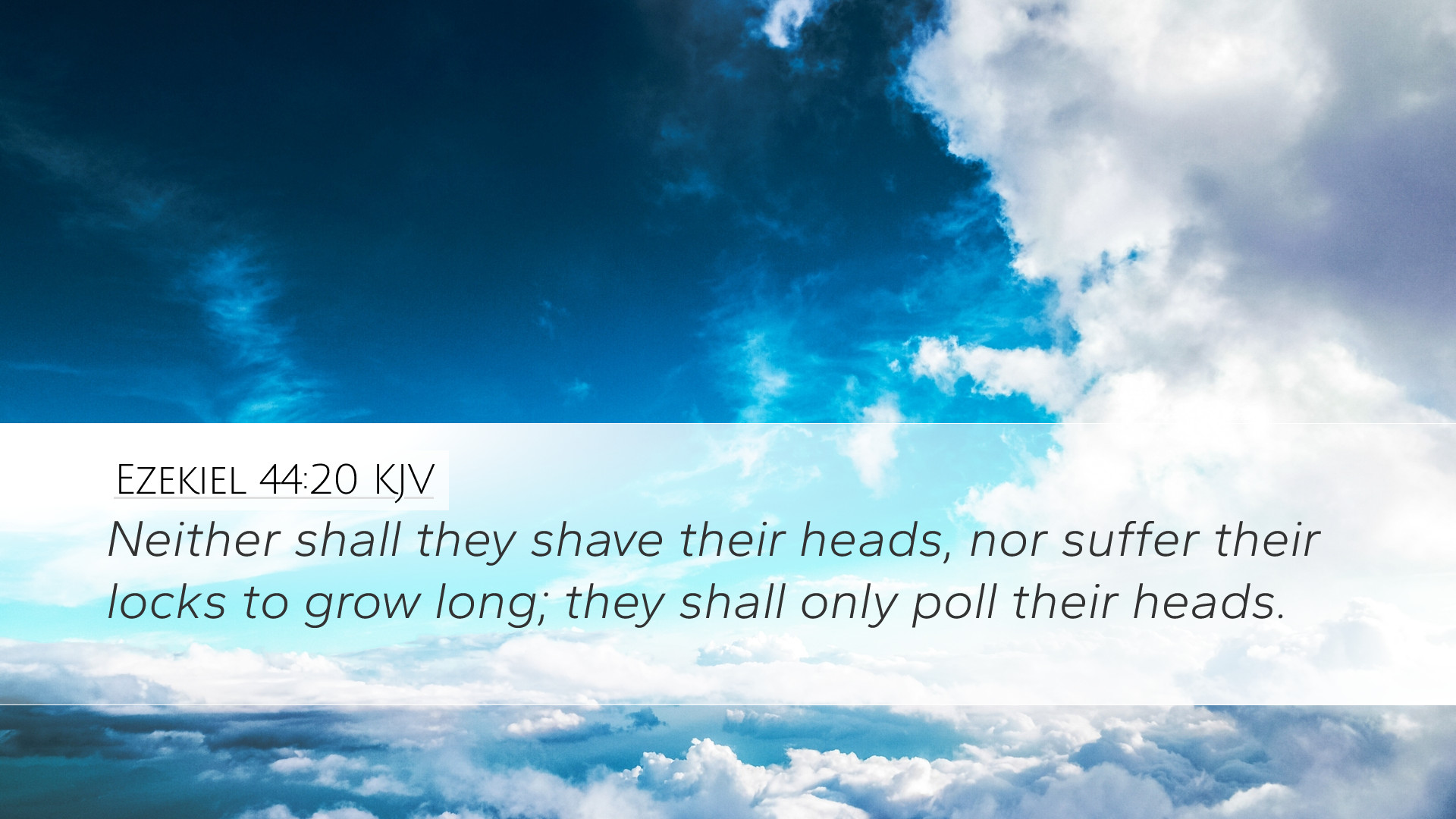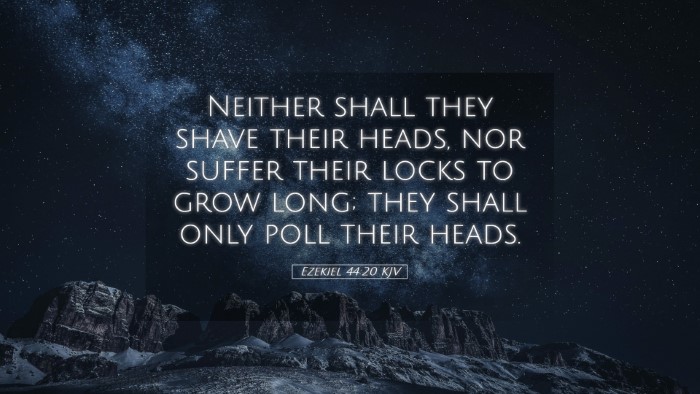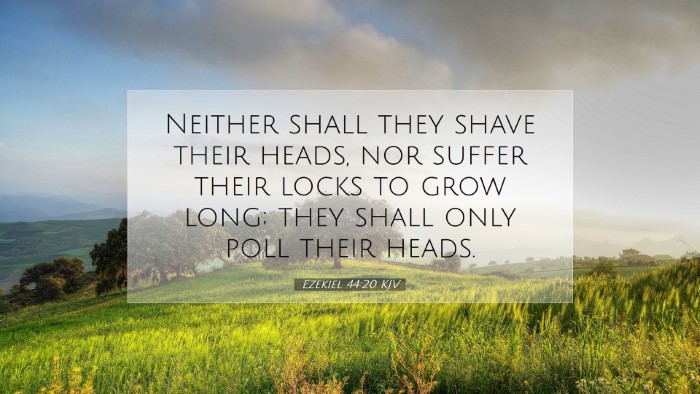Commentary on Ezekiel 44:20
Ezekiel 44:20: "Neither shall they shave their heads, nor suffer their locks to grow long; they shall only poll their heads."
Introduction
The book of Ezekiel, a prophetic work from the Old Testament, addresses the issues of holiness, purity, and the proper conduct of those who serve before God. Ezekiel 44:20 is part of a larger discourse where God elaborates on the behaviors and responsibilities required of the priests who are to minister in the temple after the restoration of Zion. This commentary draws insights from various public domain sources to present a thorough examination of this verse.
Insights from Commentators
Matthew Henry
Matthew Henry emphasizes the importance of maintaining a distinct appearance among the priests, suggesting that their outward appearance symbolizes their inner state of holiness and dedication to God's service. He remarks on the symbolism of hair, indicating that its management reflects a priest's commitment to God. The injunction against shaving or allowing the hair to grow long serves as a physical representation of the balance between discipline and moderation within the priestly responsibilities.
- Simplicity and Humility: The requirement to keep their heads properly groomed signifies a call to simplicity and humility in the life of a servant of God.
- Separation from Worldly Practices: The acts of shaving and growing long hair were often associated with pagan rituals. By imposing this regulation, God clearly delineates the priests from surrounding cultures.
Albert Barnes
Albert Barnes notes that the prohibition against cutting their hair in certain ways serves to institute a form of discipline among the priests, fostering a corporate identity based on divine standards. He further suggests that this is rooted in maintaining a sanctified lifestyle and adhering to God’s commandments sharply delineated in the Mosaic Law.
- Clear Distinction: Barnes explains the distinction made in the attire and grooming of the priests as a continual reminder of their unique role before God.
- Physical Symbols of Spiritual Reality: He posits that the physical state of one’s hair is not merely ceremonial but hints at a deeper spiritual state which priests are called to embody.
Adam Clarke
Adam Clarke provides a detailed linguistic analysis of the Hebrew terms used in the verse. He focuses on the word “poll,” indicative of a specific method of cutting the hair that avoids extremes. Clarke relates this grooming regulation to a broader theme of moderation in the life of faith, illustrating that the priests should neither resemble those who mourn (shaved heads) nor those who indulged (long, uncut locks).
- Moderation as a Virtue: Clarke asserts that maintaining this balance demonstrates a virtue that is often lacking in religious lifestyles — an equilibrium between extremes.
- Symbol of Their Consecrated Status: He highlights that the grooming laws are not arbitrary but serve to remind the priests and the people of their consecrated status before God.
Theological Implications
From these commentaries, we see the theological implications of Ezekiel 44:20 unfold. The maintaining of proper hair reflects a deeper truth about the nature of God’s holiness. The priests, representing the people, are called to embody purity, not only in their hearts but also in their external appearance. They serve as a mediator between God and man, consequently, their lives must reflect the divine standards set forth by God Himself.
Holistic Holiness
True holiness encompasses every aspect of life. In relation to Ezekiel's instructions, external symbols such as grooming choices serve to remind both the priests and the nation of Israel of their covenant relationship with God. The emphasis on avoiding extremes encourages believers to practice moderation and intentionality in every facet of their lives.
Contextual Relevance
In its contemporary setting, this passage prompts a reflection on how modern believers express their faith through outward manifestations. This raises important questions about the balance between cultural expressions and adherence to biblical principles. The call for moderation in appearance can inspire discussions on how Christians today can embody a lifestyle that pleases God, blending cultural relevance with spiritual fidelity.
Conclusion
Ezekiel 44:20 serves as a crucial reminder of the importance of holiness in our lives. By examining the insights from renowned biblical commentators, we recognize the value of outward expressions that reflect a faithful inward reality. For pastors, students, and scholars, this passage offers rich ground for exploring the interplay between physical moderation and spiritual vitality as foundational aspects of faithful service to God.


